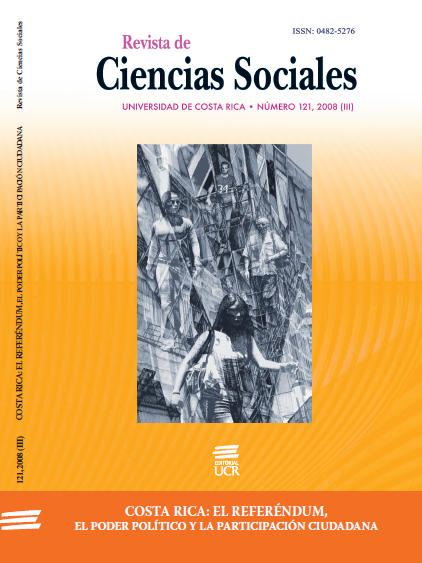Abstract
This article analyses the referendum on the Free Trade Agreement with the United States, Central America and the Dominican Republic (CAFTA), which took place in Costa Rica during 2007. The premise of the author is that, due to its great political significance and its socio-political complexity, the referendum must be analyzed from various approaches, including political communication. From that perspective, the author points out several elements: first, the media structures in which the communication campaigns, in favor and against, were developed. This includes television, radio, newspapers and Internet. Second, the referendum’s rules of the game, including the issues of funding, the media agenda setting, the role of the Executive and, finally, the strategy and content of the campaigns developed by the groups in favor (Yes) and against (No) CAFTA. Internet deserves special mention as a new arena of contention communications in Costa Rica. Throughout the article, the author showed evidence of the inequality in the rules of the game, economic resources and media agendas, including the use of fear as political resource, which clearly favored groups that supported CAFTA, but that substantially limited the democratic content of the referendum. The article concludes pointing out lessons and aspects that should be modified in order to democratize referendum in Costa Rica.##plugins.facebook.comentarios##
Downloads
Download data is not yet available.


